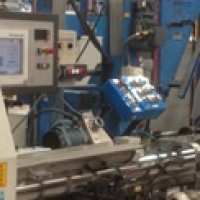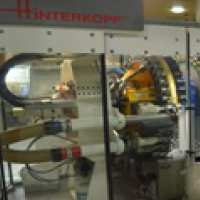Currently John Bigley is managing director of Jamestrong Packaging in Australasia which has a 180 million Australian dollar turnover and global partners including Heinz and Unilever.
Describe your career.
“I have been in the metal packaging business since I graduated 30 years ago. I have been involved in the production and sales of all manner of cans: two-piece beverage, biscuit tins, talc tins, whiskey tins, food cans, easy-open ends, aerosol cans and, more recently, aluminium bottles.
 I started out as a service engineer at Metal Box, working at its customers’ beverage can plants around the world. The work provided a great introduction to the industry, and gave me an opportunity to learn early on the importance of equipment uptime and process capability. Getting shouted at to get the machines running by various production managers around the world in several different languages was also part of the learning curve.
I started out as a service engineer at Metal Box, working at its customers’ beverage can plants around the world. The work provided a great introduction to the industry, and gave me an opportunity to learn early on the importance of equipment uptime and process capability. Getting shouted at to get the machines running by various production managers around the world in several different languages was also part of the learning curve.
As Metal Box became CarnaudMetalbox and later merged with US-based Crown Cork & Seal, I moved up through a number of technical and plant management roles.
In 1999, I left Crown and joined US Can, which three years earlier had bought a number of Crown aerosol can plants in the UK and Europe as part of an acquisition spree. Seven years later in 2006, when running the European aerosols operations, the US Can business was bought by Impress which was subsequently acquired by Ardagh Group in 2010. 
There’s never a dull moment in the industry and you are continually learning, whether it be a about processes or the people you work with. Metal packaging is a great industry to be in and very diverse.
Soon after in early 2011, I was asked to move down under and head up Ardagh’s Australasia business out of its corporate offices in Melbourne.
It meant that instead of making aerosol cans for de-icers in cold Europe I would be making insecticide cans in warm Australia, which I found to be a very different market.
The market is indeed complex, as the strength of the Australian dollar has driven some fillers offshore and there is a significant proportion of imported filled goods. However, if you are able to operate at relatively low cost with short lead-times, you can manufacture successfully locally.
I have also long been a supporter of industry associations as I see it as responsibility of companies operating within their respective industries.
 I have been chairman in the UK of both the Metal Packaging Manufacturers Association and the British Aerosol Manufacturers Association. So when I arrived in Melbourne, it was only natural that I got involved with the Aerosol Association of Australia.
I have been chairman in the UK of both the Metal Packaging Manufacturers Association and the British Aerosol Manufacturers Association. So when I arrived in Melbourne, it was only natural that I got involved with the Aerosol Association of Australia.
As a major supplier within the industry, it is important that we understand the challenges being faced by our customers, both from a regulatory and market dynamics point of view. I have since been appointed president of the Aerosol association, providing a leading role at a time when there have been significant changes in the aerosol industry.
Our Australasian business has recently been divested and is now owned by a Chinese company. I have remained as managing director in what will be a very exciting phase of the business as we look to grow within the region.”
What did you learn during your time at Imperial, in class and out?
“I learnt many things at Imperial. I learnt the discipline behind attending tutorials and took advantage of that one-to-one mentoring that is invaluable. I also built skills in teamwork through the group projects, gained an awareness of the breadth and scope of engineering subjects and found my final year project in Biomechanics highly rewarding.
Outside class, I managed to learn how to cook, as well as how to survive on a low budget in London!
The quality of teaching and lecturing was outstanding and I loved making new friends and becoming self-sufficient.”
How has what you learnt at Imperial helped you in your career so far?
“I certainly think that Imperial’s reputation for engineering was a key factor in me getting my first role. Whilst I have not used the engineering theory taught directly in any of my roles, the approach to problem-solving, the key analytical skills and multi-functional teaching have helped indirectly.”
What are your plans for the future?
“I plan to stay in my current role as managing director in Australasia, during what will be an exciting time for the business.”
How would you advise current students?
“My advice for current students would be don’t waste the opportunity you have to learn from the best and make the most of your time at Imperial to broaden your perspective.”
What’s the most difficult decision you’ve ever had to make?
“Closing several plants in Europe and a plant in Australia.”
Do you have a favourite quote or saying?
“A saying taken from the great golfer, Gary Player, ‘the harder I practice the luckier I get’. “